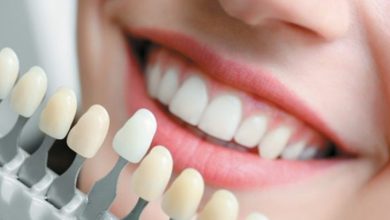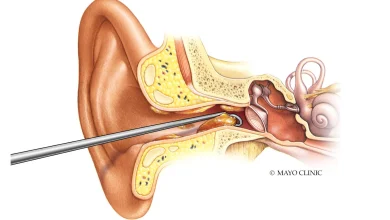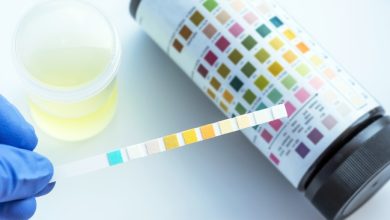Is Teen Depression Real?

Every parent with a teen child understands how moody, emotional, and unpredictable they can be at times. But when does a bad mood turn into a serious mental health condition like teen depression? How can you know when that line is crossed and how do you help your teen if you do believe they’re suffering from depression?
Without proper medical training, no one should be expected to be able to immediately identify teen depression. However, there are some common symptoms to look out for and some common causes that can help you assess the mental health of your teen. Here, we’re taking a closer look at teen depression to dispel the myth over whether or not teen depression is real or not—it is. We also into some of the effective treatment options for teens with depression.
Table of Contents
WHAT IS DEPRESSION?
According to the American Psychiatric Association, depression, or major depressive disorder, is defined as a “common and serious medical illness that negatively affects how you feel, the way you think, and how you act.” While all of us feel sad, alone, or negative at times (which is perfectly natural), depressed individuals will feel this way for months or even years at a time which may lead to serious complications if left untreated.
WHAT MAKES TEEN DEPRESSION DIFFERENT?
While there are many similarities, there are a few key differences between adult depression and teen depression. While adults will tend to withdraw from those around them, depressed teens may still engage socially and try to act as if nothing is wrong. Adults with depression often express this condition through sadness and disinterest, while it’s common for teens with depression to act more irritable and outwardly angry. Teens may also struggle more with understanding and coping with their condition.
TEEN DEPRESSION SYMPTOMS
There are many unique emotional and behavioral symptoms that are indicative of teen depression. Most likely, your teen will not exhibit all of these symptoms since depression is such a personal condition. To help you know what to look for, here’s a look at some of the most common symptoms of teen depression:
- Feeling sad or hopeless (often for no apparent reason).
- Irritability and anger.
- Loss of interest in activities or hobbies they used to enjoy.
- Extreme sensitivity to rejection or failure.
- Low self-esteem.
- Insomnia.
- Use of drugs or alcohol in an attempt to self-diagnose.
- Trouble concentrating or focusing (especially in school).
- Change in regular eating habits.
- Thoughts of suicide or self-harm.
WHAT CAUSES TEEN DEPRESSION?
Teen depression can be challenging to identify because there is no single direct cause of this mental health condition. Instead, doctors suspect that there may be a variety of factors that lead to someone developing depression. These are some of the most prominent potential causes of teen depression:
1. Brain chemistry and hormones.
Damage to the neurotransmitters in your brain can affect your nervous system and cause depression. Hormone imbalances can also cause depression, especially in teenagers who are constantly dealing with changes to their hormones.
2. Genetics.
Like many other physical and mental disorders, depression can be inherited through genetics. This is why it’s important to know your family’s history of mental health conditions.
3. Childhood trauma.
Serious trauma occurring during childhood, such as assault, emotional abuse, or the death of a loved one, can cause teen depression. These traumatic incidents can be so powerful that they actually change the structure of the brain, making the individual more susceptible to depression.
4. Bullying and isolation.
Social factors, such as bullying, can lead to depression over time. Forming healthy relationships, especially for teens, is incredibly important for their emotional and mental well-being. When they’re unable to do so, they can become isolated and even slip into teen depression.
HOW TO DIAGNOSE TEEN DEPRESSION
Teen depression can be difficult to diagnose because most parents don’t have the tools or expertise to distinguish between teen depression and mood swings that are common for any teenager. This is why it’s so important to have an open and honest conversation with your teen to try to better understand what they’re going through. If everyone agrees that medical intervention will be beneficial, schedule an appointment with a doctor or mental health professional. Even if you’re not 100 percent sure it’s depression, it’s better to err on the side of caution.
During a diagnosis, doctors will perform various tests to determine whether or not your teen is experiencing depression. These tests generally include a physical exam, blood tests, and a psychological evaluation. These tests will help your doctor identify the issue at hand, which will allow them to formulate an effective treatment plan.
CAN TEEN DEPRESSION BE TREATED?
Yes, It can be treated. While the thought that your teen is undergoing a mental health issue can be terrifying for any parent, it’s important to know that teen depression (in addition to adult depression) is a very treatable condition. It is commonly treated with psychotherapy (talk therapy), medication, or a combination of the two. Some even find it effective to have their teen enter a residential treatment center, which can allow them to understand their condition and develop healthy ways to manage their symptoms.
BENEFITS OF RESIDENTIAL TEEN TREATMENT CENTERS
A residential teen treatment center can be a very effective option for treating teen depression. Compared to psychotherapy or medication alone, teen treatment centers offer a comprehensive and intensive approach toward treating depression, in addition to a host of other mental health and substance abuse issues.
Teen treatment centers can help your teen by providing around-the-clock care from a host of medical professionals. It’s simply hard to match this level of care and attention—even for a dedicated parent. They’ll also work with professionals to develop healthy coping habits and be able to make connections with other teens undergoing similar experiences.
CONCLUSION – IS TEEN DEPRESSION REAL?
Doctors and mental health professionals agree: teen depression is very real and it is a very serious mental health condition. If left untreated, teen depression can disrupt your teen’s life, damage relationships, lead to drug or alcohol addiction, or even suicide. However, is a very treatable condition, which is why it’s so important to contact a doctor if you believe your teen is experiencing depression.
A doctor can help you identify the most effective treatment option for your teen. Whether using psychotherapy, medication, or a treatment teen center, there are many effective options for treating teens with depression. What’s most important is that you’re the one to start the conversation with your teen.




